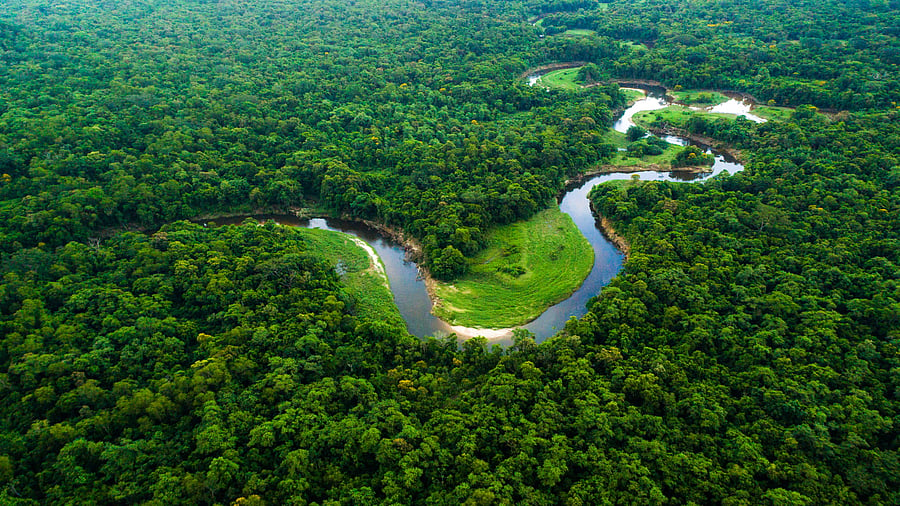
Representative image for forest
Credit: iStock Photo
New research has found that tropical rainforests – carbon sinks that mitigate the impact of emissions and are considered bulwarks against climate change – are turning into net emitters. A study published in Nature by scientists in Australia has reported that trees have started to become a net source of carbon dioxide in the atmosphere. This shift, which has been traced to climate change, shows that the capacity of woody biomass to absorb carbon is at risk. Rising tree mortality caused by extreme temperatures and atmospheric dryness appears to be driving this change. More trees die in the forests because of climate change than are born. These findings carry global import because they indicate that forests, unable to cope with the warming, are becoming ineffective as shields against climate change.
Tropical rainforests are diverse ecosystems that exist across continents. They have played a significant role in countering climate change and helped regulate weather in proximate areas, apart from functioning as a critical environmental safeguard. The physical extent of forests and their quality have been declining. In the recently released 2025 Forest Declaration Assessment report, it has been noted that 8.1 million hectares of forest were lost in 2024. According to the report, the level of destruction is 63% higher than the trajectory required to halt deforestation by 2030, a target set during the COP26 climate negotiations in Glasgow, four years ago. The expansion of commercial agriculture has been cited as one of the main reasons for this high level of destruction. Major targets have been set for forest restoration. If reports on progress made are any indication, the pledges made by many countries, including India, to restore large tracts of forests will not be fulfilled.
The findings from Australia show that the situation is worse than predicted. The researchers have found that the current models may have overestimated the capacity of tropical rainforests to help offset fossil fuel emissions. They have noted that cyclones suppress the carbon sink capacity of woody biomass in these forests and that is a cause for concern because cyclones are expected to become more severe under climate change. The study is based on five decades of data collected from Australian forests and the scientists have said that the findings could be “a sort of canary in the coal mine”. While research on forests in other parts of the world needs to draw on this fresh perspective, the findings certainly make a case for stronger and more focused efforts to counter climate change.
